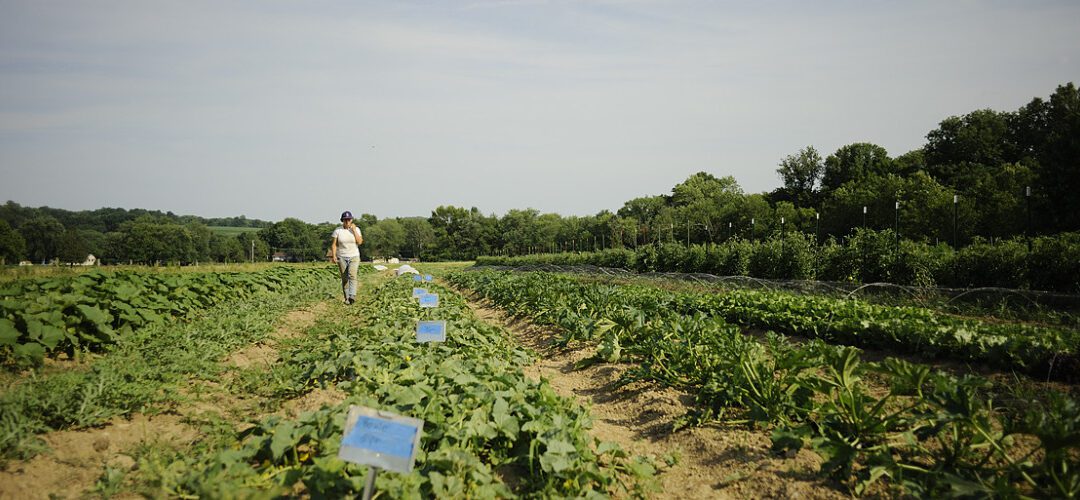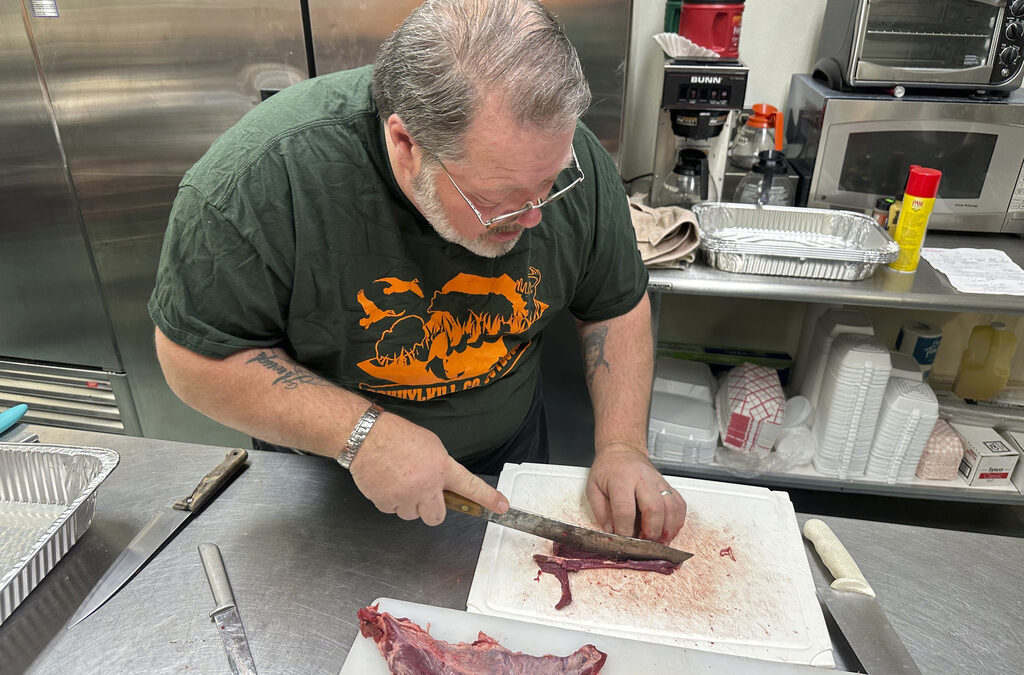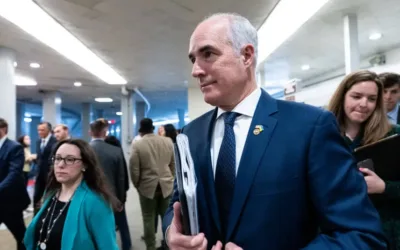Gov. Josh Shapiro visited Lebanon County Wednesday to tout a farmland preservation milestone.
Shapiro announced at Talview Dairy Farm that Pennsylvania has now preserved 6,600 farms and 650,000 acres of farmland for agricultural use, now making Pennsylvania the state with the most farms preserved in the nation.
“I am proud of the fact that we are the top state in the nation for farmland preservation,” Shapiro said. “And this work is critical. More and more of our family farms can stay farms forever.”
“Listen, preservation is critically important,” he added. “The future of agriculture is absolutely critical.”
This is a result of the Farmland Preservation Program, which was created in 1988 as a partnership between all levels of government and non-profit organizations, with the intention of saving farmland.
Since then, Pennsylvania has invested more than $1.78 billion in partnership with county and local governments to protect these farmlands from sprawl and development. Shapiro’s administration has invested more than $140 million into this program, since he took office.
Brent Copenhaver and his wife Stacey own Talview Dairy Farm, a dairy operation in Lebanon County, and sell most of their milk regionally in Pennsylvania. They are currently milking about 400 cows and farm approximately 400 acres they purchased from Stacey’s parents.
Their farm was preserved in 1994 as a part of this program.
“Preserving farmland ensures agriculture stays part of Pennsylvania’s economy,” Brent Copenhaver said. “As far as local food, local jobs, and just community, in general.”
“When you protect a farm, you’re not only saving open space, you are protecting the values, the work ethic, and the opportunities that farms pass on from generation to generation,” he added.
Lebanon County has preserved about 22,000 acres of farmland since the creation of this program, with another 2,000 acres in the process of preservation.
Pennsylvania Agriculture Secretary Russell Redding and Shapiro lauded that the program has been continued by Democratic and Republican administrations, as proof the effort to preserve farmland is a bipartisan issue.
According to Shapiro’s administration, agriculture contributes $132 billion to the commonwealth’s economy annually and supports nearly 600,000 jobs in the state.
But, Shapiro said, the Trump administration’s trade policies put the commonwealth’s agriculture sector at risk.
Since the beginning of Trump’s second term, Shapiro has been an outspoken critic of President Donald Trump’s tariff policy.
When talking to farmers about their concerns, Shapiro said he often hears that they want more capital and they’re worried about the workforce. He also said they’ve expressed concern about tariffs.
“I think we’re seeing the tariffs really hurt our farmers here in Pennsylvania,” Shapiro said in response to a question from the Capital-Star. “We’ve seen, for example, those who work in, you know, the forestry industry, they’ve lost 35% of their market in just the six months or so since those tariffs have been in place.”
“We’ve seen a number of our dairy farmers be more and more and more concerned about losing market share, particularly with Mexico,” he added. “I think these tariffs are just hurting our farmers, maybe more than any other sector.”
Farmers, Shapiro said, are bearing the brunt of the impact of tariffs.
Republican officials who support Trump’s tariff policies believe it will have a positive impact and protect American agriculture and jobs.
According to Axios, National Economic Council director Kevin Hassett said a “clever and generous” bailout for farmers could be coming as soon as the government shutdown ends, in response to the impact felt by tariffs. There have been reports that the bailout could be at least $10 billion.
During Trump’s first term, about $25 billion from the Commodity Credit Corporation (CCC) was used to give direct payments to farmers impacted by trade disputes with China.
CCC funds are used to implement specific programs established by Congress as well as to carry out activities under the broad authorities of the CCC Charter Act, according to the USDA.
During a visit to Talview Dairy in April, U.S. Agriculture Sec. Brooke Rollins said the administration is prepared to provide relief to farmers “if there is damaging consequences to these (trade) negotiations.”
Shapiro said that he hasn’t seen what the Trump administration is planning to do with a potential bailout, but used it as an opportunity to double down on his criticism of tariff policy.
“I’m not sure why you’d put tariffs in place, shut down markets, drive up costs, and then say to farmers, and here’s some money, not to farm,” Shapiro said to the Capital-Star. “I think what farmers want to do is they want to farm. They want to produce more of their crops. They want to do more.”
“They don’t want to be inhibited,” he added. “And I think what these tariffs have done is really inhibited our farmers and driven up costs for consumers.”
Copenhaver told the Capital-Star that his farm hasn’t personally felt an impact as a result of the tariffs.
What do farmers want?
Copenhaver said right now, like many farmers, the No. 1 issue or concern on farmers’ minds is the price and profitability of agriculture and farming.
“I think everyone wants to be profitable, of course,” he told the Capital-Star.
He said the industry at times faces economic issues, as well as weather-related dilemmas, noting that agriculture is “always very challenging.”
However, Copenhaver said he’d describe the current state of agriculture in Pennsylvania as “very strong.”
“We can go anywhere from poultry to crop farming to beef to dairy. And I feel very fortunate that I am able to farm in Pennsylvania,” he said.
What can the state and federal government do to positively impact agriculture?
“The best thing that state government can do would be get the budget passed,” Copenhaver said. “I think that would be very important as far as some funding for agriculture. I also think it has ramifications on local school districts.”
Pennsylvania’s budget impasse is now over 100 days.
He also called for the federal government to pass a budget as an action to help farmers.










